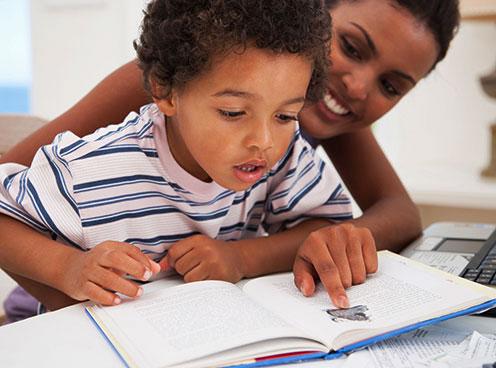Unlocking the Power of Words: Supercharge Your Child’s Vocabulary with the Magic of Exercise
Prepare to be amazed as groundbreaking research uncovers the astonishing link between exercise and your child’s vocabulary growth. Find out what every parent needs to know about this game-changing study!
Boost Your Child’s Vocabulary: Dive into the Fascinating World of Exercise
Are you searching for innovative ways to boost your child’s language skills? Look no further than the realm of exercise!

A recent study conducted by researchers at the University of Delaware has revealed a remarkable connection between aerobic exercise, such as swimming, and the growth of children’s vocabulary.
Get ready to dive into this groundbreaking research and explore how exercise can transform your child’s linguistic abilities.
Dive into Success: Swim Your Way to an Expanded Vocabulary
Swimming a few laps may not turn your child into an Olympic athlete, but it could pave the way for their literary greatness.
In a groundbreaking study, children aged 6 to 12 were introduced to new words before engaging in various activities: swimming, participating in CrossFit exercises, or completing a colouring sheet.
Surprisingly, the children who swam exhibited a remarkable 13% increase in accuracy during follow-up tests of the vocabulary words.
The Science Behind the Magic: Enhancing Vocabulary Learning through Exercise
Maddy Pruitt, the lead researcher and a former college swimmer turned speech-language pathologist, sheds light on this connection between exercise and vocabulary growth.
Motor movement plays a pivotal role in encoding new words, and exercise is known to elevate brain-derived neurotrophic factor—a protein Pruitt refers to as the “Miracle-Gro of the brain.” By engaging in physical activity, children stimulate their brains, facilitating the acquisition and retention of vocabulary.
The Key to Success: Automaticity and Mental Energy
While swimming proved to be a game-changer for vocabulary growth, CrossFit exercises did not yield the same results. Pruitt attributes this difference to the varying mental energy demands of each activity.
Swimming, being more automatic and requiring less mental effort, allowed children to effortlessly focus on retaining the new words. In contrast, CrossFit exercises introduced new movements that demanded mental energy, diverting attention from vocabulary acquisition.
From Research to Practice: Empowering Educators and Caregivers
These groundbreaking findings have practical implications for educators, caregivers, and speech-language pathologists. By taking learning beyond the confines of a traditional classroom setting, educators can seize opportunities to incorporate exercise into vocabulary lessons.
Speech-language pathologists, inspired by Pruitt’s work, have already started implementing these findings in their sessions, taking children out to the playground or embarking on walks to enhance language development.
Unlocking the Future: Harnessing Exercise for Enhanced Language Acquisition
This study marks just the beginning of an exciting journey into the intersection of exercise and language acquisition. Giovanna Morini, an assistant professor and co-author of this study, is building upon these findings in her lab.
Morini recognizes the immense potential of exercise as a tool for boosting language outcomes, and her ongoing research includes experiments with toddlers.
Revolutionise Your Parenting Techniques: Empower Your Child’s Linguistic Potential
As parents, we hold the key to unlocking our child’s linguistic potential. By acknowledging the transformative power of exercise in vocabulary growth, we can revolutionise our parenting techniques.
Incorporating physical activity into our children’s lives becomes more than just promoting a healthy lifestyle—it becomes a catalyst for expanding their vocabulary, nurturing their creativity, and setting them on the path to success. It’s time to take the plunge, ignite their imagination, and embrace the magic of exercise.
For more parenting news check out the Boobobutt Newsroom here – click here.
Leave a Reply